- Home
- English Studies
- Courses
English Studies
Questions?
Undergraduate Affairsuenglish@uwo.ca
519.661.2111 x85796
Undergraduate Chair
Dr. A. Schuurman
anne.schuurman@uwo.ca
519.661.2111 x85814
Arts & Humanities Academic Counselling
arts@uwo.ca
519.661.3043
English Studies Courses
To complement English modules, our courses focus on narrower themes and issues which better reflect the current state of the field and the research interests of our faculty.
featured courses
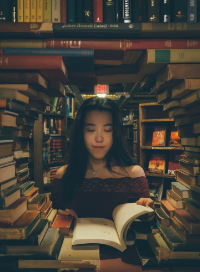
1020E - Understanding Literature Today
Study a broad range of exciting and important literary works from the past and present and from diverse communities of the English-speaking world.
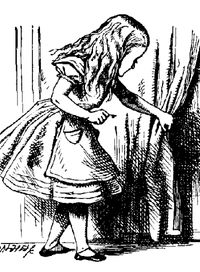
2033E - Children's Literature
Study the major genres of children's literature, including fairy tale, fantasy, nonsense, picture books, and adventure fiction.
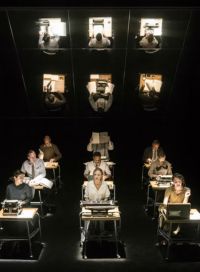
2041F - Drama Production: Machinal
Earn course credit while performing, producing and composing with an interdisciplinary group of students from all faculties.
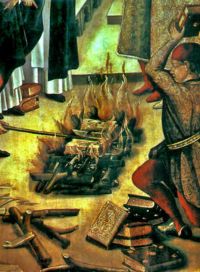
2016G - From Pixels to Papyrus: A History of the Things We Read
Explore book history from manuscripts to eBooks in this hands-on course, which includes field trips and guest lectures on publishing evolution.
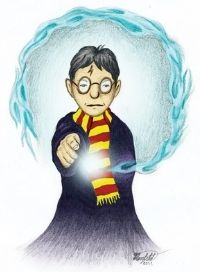
2032F - Harry Potter
Harry Potter transcends traditional boundaries, appealing to all ages and genders through its mix of gothic, detective, fantasy, adventure, and dystopian genres. This course explores these influences.
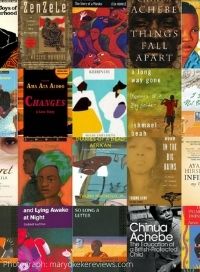
2601E - Global Literatures in English Survey
Survey the links between and among different literary traditions and innovations across diverse geographic regions.
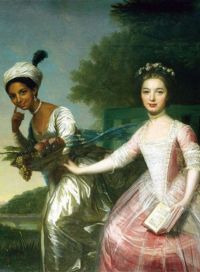
3344G - Black Lives in the Eighteenth Century
In this course, you will learn about Black experience in the UK and North America. Using nonfictional and imaginative texts, archives, and images of Africans we will attempt to understand who was able to tell their story and why. We will also ask how we can study lives that are not recorded in the books.
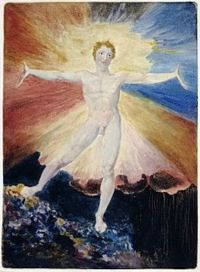
3351F - Romantic Revolutions
Study the complexities and ironies in Romantic writing, while exploring both the revolutionary potential and limitations of multiple romanticisms.
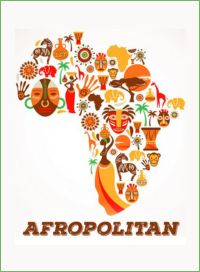
3698G - Afropolitan Literature as World Literature
Learn about the ways in which contemporary African and Afrodiasporic literature challenge the questions of mobility, citizenship, and the nation-state. Explore the stylistic strategies that global African writers use to challenge “single stories” about Africa in their works.

4470F - Climate Humanities
Explore how art and literature help us navigate the climate crisis and consider the role the humanities play as the terms of human life grow increasingly precarious. Guided by decolonial thinkers, artists, and activists, we’ll craft hands-on experiments to imagine and enact more collective, constructive ways of being in the world.
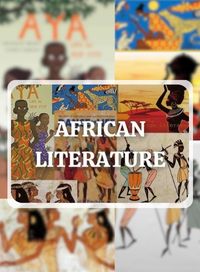
4670G - The Colonial Factor in Modern African Literature
Explore modern African literature and its complicated relationship with European colonialism. Learn how the politics of language, gender, race and readership are embedded in the colonial history of African literary productions.
See Western Academic Timetable for course delivery details.
spring/summer 2026 Courses (Subject to change)
Distance Studies - 6 WEEKS (May 4 - July 24)
POPULAR! 1020E - Understanding Literature Today
By studying a broad range of exciting and important literary works from the past and present, this course will increase your understanding and appreciation not just of the richness and power of the works themselves, but also of the role of literature in reflecting and shaping our perceptions of the world and of ourselves. 1.0 course
| Spring/Summer | 1020E / 650 | J. Devereux | Syllabus |
POPULAR! 2033E - Children’s Literature
This course examines the development of literature for and about children from its roots in fairy tales, nursery rhymes, and nonsense literature. Animal stories, adventure tales, picture books, and domestic novels will be considered alongside visits to fantasy realms like Wonderland, Neverland, or the Land of Oz. A central focus will be the assumptions about children and childhood that shape these texts, all produced by adults based on what they believe children enjoy, want, or need. 1.0 course
| Spring/Summer | 2033E / 650 | G. Ceraldi | Syllabus |
POPULAR! 2071F - Speculative Fiction: Science Fiction
From Mary Shelley's Frankenstein to Ridley Scott's Blade Runner, a consideration of the history and development of science fiction. Will include science fiction themes such as the Other, new technologies, chaos theory, cybernetics, paradoxes of space/time travel, first contact, and alien worlds. 0.5 course
| Spring/Summer | 2071F / 650 | J. Schuster | Syllabus |
3330E - Shakespeare
Shakespeare remains one of the most influential of English writers. This course studies twelve plays across a range of genres. Instructors may integrate theatre-oriented exercises and/or other dramatic or non-dramatic material, depending on individual emphasis. When possible, the teaching program will include an autumn theatre trip. 1.0 course
| Spring/Summer | 3330E / 650 | J. Purkis | Syllabus |
fall/winter 2025-26 Courses (Subject to change)
1000 Level Courses
1020E - Understanding Literature Today
By studying a broad range of exciting and important literary works from the past and present, this course will increase your understanding and appreciation not just of the richness and power of the works themselves, but also of the role of literature in reflecting and shaping our perceptions of the world and of ourselves. 1.0 course
| Fall/Winter | 1020E / 001 | J. Devereux | Syllabus |
| Fall/Winter | 1020E / 002 | M. Rowlinson | Syllabus |
| Fall/Winter | 1020E / 003 (Evening) | M. McDayter | Syllabus |
1022E - Enriched Introduction to English Literature
Why does literature matter? This course will pose this question by examining works of literature from the fourteenth century to now and through assignments that ask you to hone a range of interpretive, critical, and creative skills necessary to your future success as students and leaders. Above all the course will explore how the writing and reading of literature are inherently political acts that ask us to think through our most pressing issues – environment, sexuality, race, gender, class – with tolerance for others and hope for the future. 1.0 course
| Fall/Winter | 1022E / 001 | J. Boulter | Syllabus |
POPULAR! 1027F - The Storyteller’s Art I: Introduction to Narrative
The act of storytelling has been essential to human culture from the time of the ancient Greeks to the present day. Stories are integral to the way we define ourselves – and manipulate others. This course will examine the story teller’s art not only through novels and short stories but also in its ancient and modern forms, ranging from the epic to more recent forms such as the graphic novel. As diverse as these stories may seem, they share a central concern with the way we represent ourselves and interpret others. 0.5 course
| Fall 2025 | 1027F / 001 | A. Lee | Syllabus |
| Fall 2025 | 1027F / 002 | G. Ceraldi | Syllabus |
POPULAR! 1028G (001) - The Storyteller’s Art II | Introduction to Narrative - Strange Stories and Disturbing Narratives
This course examines texts that leave readers with questions about what happened or why it happened. Some are Gothic, or mysterious; others flirt with the strange or are simply weird in their content or method of narrating the story. All of them leave the reader with doubt. Literature always aims to engage the reader’s curiosity and imagination; these texts amplify the reader’s role in interpreting what seems inexplicable. 0.5 course
| Winter 2026 | 1028G / 001 | A. Lee | Syllabus |
POPULAR! 1028G (002) - The Storyteller’s Art II | Introduction to Narrative - Stories about Stories: From Realism to Fairy Tale
Since the time of Jane Austen, literary excellence has been associated with realism. The nomination lists for major literary awards are often dominated by texts characterized by realistic settings, complex characters, and an attention to the small details that make up the fabric of ordinary life. Nevertheless, in recent years the cultural landscape has come to be dominated by the fantasy genre: ranging from the Harry Potter series to post-apocalyptic fantasies like The Last of Us, fantasy tropes have become increasingly central to the way we tell our stories, examine our politics, and think about our future. This course will examine the dominance of realism by looking not only at realist novels but also at texts that feature characters who are themselves authors (or artists) struggling to balance the demands of realism with the appeal of fantasy and fairy tale. 2 lecture hours, 1 tutorial hour, 0.5 course
| Winter 2026 | 1028G / 002 | G. Ceraldi | Syllabus |
2000-2099 Level Courses (No prerequisites)
2016G - Papyrus to Pixels: A History of the Things We Read
This course explores the broad sweep of book history from early manuscript culture to the eBook. Much of this course will be “hands-on,” working with the material artifacts or facsimiles of book culture. Field trips and guest lectures will enhance our understanding of the book’s long and complex history. 0.5 course
| Winter 2026 | 2016G / 001 | M. McDayter | Syllabus |
2017 - Reading Popular Culture
"If Shakespeare were alive today, he'd be writing for television." This course addresses the many forms of popular culture, including television, music, popular fiction and film, urban myths, and celebrities. The aim of this course is to encourage students to develop a critical understanding of all aspects of popular culture. FINAL EXAM WILL BE HELD IN-PERSON ON CAMPUS. 1.0 course
| Fall/Winter | 2017 / 650 (Online) | N. Joseph | Syllabus |
2018A - The Culture of Leadership I
This course addresses the complex nature of leadership represented in key works of literature and culture. We will focus on the ethical dilemmas and moral choices faced by leaders to ask what role a leader plays: hero, manager, thinker, strategist, artist, figurehead, authority? Is it possible to have different cultures of leadership? Why is storytelling such an influential part of leadership, and why do we love stories about leaders—even the ones who fail? Over the course of the term, we will have a chance to discuss some fascinating texts about leaders, leadership, and power structures; however, we will also try to balance these discussions with forms of experiential learning and apply the insights from our course texts to practical contexts during a leadership interview of a community leader that each student will conduct.
We will begin our study by examining works describing classic leaders—kings, queens, and generals—such as Shakespeare's Macbeth and Ridley Scott’s Gladiator. Figures such as Elizabeth I will enable us to reflect on the relationship between leadership, sexuality, and war. Herman Melville’s Benito Cereno features a battle of wills between leaders in a high-stakes, confusing environment. In the later stages of the course, we will study dystopian stories that observe individuals working against unethical systems. George Orwell’s 1984 and Cherie Dimaline’s The Marrow Thieves portray individuals who strive to overturn oppressive governments, with uncertain results. Course assignments will include an in-class essay, a leadership self-assessment, an interview conducted with a leader in the community, a class participation grade, and a final exam. 0.5 course
| Fall 2025 | 2018A / 001 | A. MacLean | Syllabus |
2032F - Harry Potter
The phenomenal success of J.K. Rowling’s Harry Potter series may relate to its roots in a variety of genres including the gothic novel, detective fiction, fantasy, and adventure. This course studies all seven books alongside other novels and short stories that illustrate the generic conventions used and adapted by Rowling. 0.5 course
| Fall 2025 | 2032F / 001 | G. Ceraldi | Syllabus |
POPULAR! 2033E - Children’s Literature
This course examines the development of literature for and about children from its roots in fairy tales, nursery rhymes, and nonsense literature. Animal stories, adventure tales, picture books, and domestic novels will be considered alongside visits to fantasy realms like Wonderland, Neverland, or the Land of Oz. A central focus will be the assumptions about children and childhood that shape these texts, all produced by adults based on what they believe children enjoy, want, or need. 1.0 course
| Fall/Winter | 2033E / 001 | G. Ceraldi | Syllabus |
NEW! 2034F - Young Adult Literature
This course examines literature for and about adolescents to interrogate what it means to be an adolescent and how the adolescent experience is represented in literature. Focusing on texts written from the 1940s on, we use key critical and theoretical debates to understand YA literature’s place within larger scholarly trends. 0.5 course
| Fall 2025 | 2034F / 001 | M. Green-Barteet | Syllabus |
2041F - Special Topics in Drama: Machinal
In this course, students participating in the Department of English and Writing Studies' Drama Production - Machinal, explore in theory and practice approaches to text in performance. Only students working as an actor, director, stage manager, assistant stage manager, lighting, set or costume designer may enroll. Please note: Auditions are held prior to the course start date so that students can register and receive a course credit for their part in the production. See course page for more details. Permission required to enroll. 0.5 course
| Fall 2025 | 2041F / 001 | J. Devereux | Syllabus |
2071F - Speculative Fiction: Science Fiction
Science fiction is a speculative art form that deals with new technologies, faraway worlds, and disruptions in the possibilities of the world as we know it. However, it is also very much a product of its time—a literature of social criticism that is anchored in a specific social and historical context. This course will introduce students to the narrative conventions and tropes of science fiction, starting with three highly influential works from the nineteenth and early twentieth century—Mary Shelley’s Frankenstein, H.G. Wells’ The Time Machine and Wells’s The War of the Worlds—that are preoccupied with humanity’s place in an inhospitable universe. A series of short stories by authors such as Ray Bradbury and Isaac Asimov will reflect the apocalyptic sensibility of the era of nuclear confrontation in the 1960s as well as the promise mid-century authors saw in new technologies. Building on these important precedents, our next texts use discussions of alien species to explore the nature of human identity. Ursula Le Guin’s novel The Left Hand of Darkness uses the trope of alien contact to explore the possibilities of an androgynous society unmarked by the divisions of gender. District 9, a film portraying the fate of an alien species on Earth, revisits many of the concerns raised by Wells in a postmodern context, and poses new questions about the limits of the human.
We will finish the course with novels examining the relationship between intelligence, human connection, technology, and environmental destruction. Rebecca Campbell’s apocalyptic novella Arboreality imagines the fate of human creativity in an apocalyptic future. Martha Wells’ “All Systems Red” novella from her Murderbot Diaries series foregrounds what many critics see as a crisis in defining human identity in a technological age. Victor Lavalle's graphic novel Destroyer comes full circle to re-examine many of the ideas about artificial intelligence brought up in Mary Shelley's Frankenstein, repositioning the creature's desires for love and vengeance in the embittered atmosphere of the contemporary United States. Assignments will include group work, class participation, two essays and a final exam. FINAL EXAM FOR SECTION 650 WIL BE HELD IN-PERSON ON CAMPUS. 0.5 course
| Fall 2025 | 2071F / 001 | A. MacLean | Syllabus |
2071G - Speculative Fiction: Science Fiction
From Mary Shelley's Frankenstein to Ridley Scott's Blade Runner, a consideration of the history and development of science fiction. Will include science fiction themes such as the Other, new technologies, chaos theory, cybernetics, paradoxes of space/time travel, first contact, and alien worlds. FINAL EXAM FOR SECTION 650 WIL BE HELD IN-PERSON ON CAMPUS. 0.5 course
| Winter 2026 | 2071G / 650 (Online) | A. MacLean | Syllabus |
2072F - Speculative Fiction: Fantasy
A study of the purposes and historical origins of fantasy, and modern developments in fantasy: alternate worlds, horror or ghost stories, sword & sorcery, heroic fantasy. May include writers such as Tolkien, Simmons, Peake, Herbert, Beagle, Rowling. 0.5 course
| Fall 2025 | 2072F / 650 (Online) | J. Kelly | Syllabus |
2073G - Speculative Fiction: Utopias and Dystopias
An examination of major utopian and dystopian texts. Will concern ways in which humanity has tried to imagine a perfect world, fix the current world, or construct an exaggerated version of the world in order to demonstrate its flaws and weaknesses. 0.5 course
| Winter 2026 | 2073G / 001 | G. Ceraldi | Syllabus |
2100-2999 Level Courses
These courses require prerequisites. Students are responsible for ensuring that they have successfully completed all course prerequisites and that they have not taken an antirequisite course, as stated in the Academic Calendar.
2112F - Adapting Across Page, Stage, and Screen (cross-listed with Film 2212F and Theatre Studies 2212F)
How does the shape an artwork takes contribute to its aesthetic and political power? When artworks flex across form and media how do their messages change? What did Marshall McLuhan mean when he said “the medium is the message”? How do genre and form shape social and political discourse? In this course, students explore these questions and more as they investigate texts that assume multiple cultural forms and represent a diversity of perspectives. 0.5 course
| Fall 2025 | 2112F / 001 | B. Diemert | Syllabus |
2200F - History of Theory and Criticism
An introduction to important issues in the history of literary criticism and theory from Plato to the twentieth century. 0.5 course
| Fall 2025 | 2200F / 001 | B. Diemert | Syllabus |
2201G - Contemporary Theory and Criticism
This course builds on the historical foundations of English 2200F/G to concentrate on important issues in contemporary literary theory and criticism. English 2200F/G is recommended as preparation for English 2201F/G. 0.5 course
| Winter 2026 | 2201G / 001 | J. Boulter | Syllabus |
2202G - Studies in Poetics
An introduction to important issues and concepts in the theory and analysis of poetry from different periods. 0.5 course
| Winter 2026 | 2202G / 001 | M. Bassnett | Syllabus |
2301E - British Literature Survey
This survey course charts the history of British and Irish literature through study of its major authors, from the anonymous poet who wrote Beowulf to the very recent Irish novelist Claire Keegan. Chaucer's The Canterbury Tales), John Donne's love poetry and devotional verse, Shakespeare, Milton, Wordsworth, Jane Austen (Sense and Sensibility, Emily Brontë, (Wuthering Heights) and T.S. Eliot are read along the way. 1.0 course
| Fall/Winter | 2301E / 001 | J. Doelman | Syllabus |
2401E - American Literature Survey ![]()
A survey of American literature from the period of imperial exploration and contact in North America to the postmodern era. In this class, we will read some of the most fascinating literary works of the United States in a variety of modes and genres. We will consider the aesthetic and formal properties of each text and consider how writers were shaped by the social conditions, ideological conflicts, economic forces, and political developments of their times, such as the forced removal of Native Americans and the practice of chattel slavery. As we study the evolution of major artistic movements and periods, we will also trace the development of important assumptions, myths, and fundamental beliefs about the United States that still influence American discourse today.
In this survey, we will also pay close attention to the voices that are heard—and not heard—in different moments of US history. The pressure of attempting to read 400 years of literary history will force us to pose questions about the limits of the American literary canon. Why do we read what we read, and who benefits from that? How have ideas of what constitutes “literature” (or “America,” for that matter) changed over time? What could lesser-known writers contribute to our understanding of the US nation and its literature? And is it possible to read so-called canonical writers in a way that produces new kinds of knowledge?
Readings will include novels such as Nathaniel Hawthorne’s The Scarlet Letter, Ernest Hemingway’s In Our Time, and Sylvia Plath’s The Bell Jar; short fiction by Herman Melville, Henry James, and Leslie Marmon Silko; personal narratives such as Harriet Jacobs’ Incidents in the Life of a Slave Girl, Zitkala-Sa’s Impressions of an Indian Childhood and Henry David Thoreau’s Walden; and poetry by Anne Bradstreet, Walt Whitman, Emily Dickinson, Langston Hughes, and Allan Ginsberg. Assignments will include 4 essays, participation quizzes, a library assignment and a final exam. 1.0 course
| Fall/Winter | 2401E / 002 | A. MacLean | Syllabus |
2501E - Canadian Literature Survey
What does literature tell us about the making of a nation and its citizens? Spanning the period from imperial exploration to Confederation to the present day, this course examines Canada’s vibrant literary culture. Students will encounter a diverse range of genres and authors, from accounts of early explorers to current internationally acclaimed and award-winning writers. 1.0 course
| Fall/Winter | 2501E / 001 | P. Wakeham | Syllabus |
2601E - Global Literatures in English Survey
This course offers students a great opportunity to survey of the links between and among different literary traditions and innovations across such diverse geographic regions as Asia, Africa, Australia, South America, and the Caribbean. Through close reading of literary texts written in English, students will explore how cultures produce different--often competing--ways of making meaning. 1.0 course
| Fall/Winter | 2601E / 001 (Evening) | N. Bhatia | Syllabus |
3000-3999 Level Courses
These courses require prerequisites. Students are responsible for ensuring that they have successfully completed all course prerequisites and that they have not taken an antirequisite course, as stated in the Academic Calendar.
3204F - Critical Race Theory (cross-listed with GSWS 3324F)
This course explores key concepts in critical race theory, focusing on: cultural constructions of race and their connection to settler colonialism and imperialism; the links between race, class, gender, and sexuality; processes of racialization; whiteness as an “invisible” category; the hypervisibility of racialized subjects; and anti-racist cultural production. 0.5 course
| Fall 2025 | 3204F / 001 | E. Lawson | Syllabus |
3209G - Topics in Theory (cross-listed with GSWS 3173F and SASAH 3392G)
This course offers advanced study in a narrowly defined area of theory and criticism. Specific content will vary from year to year depending on the instructor. 0.5 course
| Winter 2026 | 3209G / 001 | K. Korycki | Syllabus |
3300 - History of English Language
A study of the historical development of English phonology, morphology, orthography and syntax from Old English to the modern period. At the same time, we examine the changing roles of English (commercial, literary, and administrative) and the different varieties of the language available to its many speakers. 1.0 course
| Fall/Winter | 3300 / 001 | R. Moll | DRAFT Syllabus |
3316E - Love in the Middle Ages
This course explores representations of love and desire in the culture of Europe from the twelfth to the fifteenth centuries. While introducing the Middle English language, we will read romances, dream visions, mystical visions, love letters, and plays in their scientific, historical, and religious contexts. 1.0 course
| Fall/Winter | 3316E / 001 | R. Moll | DRAFT Syllabus |
3321F - Paradise Lost
This half-course will examine such topics as Milton’s grand style, Satan, epic heroism (is Paradise Lost an epic or anti-epic?), the nature of innocence, what it means to “fall,” and whether there can be a “fortunate fall.” Attention will also be paid to seventeenth-century politics, science and astronomy. 0.5 course
| Fall 2025 | 3321F / 001 | J. Leonard | Syllabus |
3326F - Death in the Renaissance
Drawing on poetry, drama and prose, this course will consider a range of literary responses to death during the period 1590 to 1670. It will begin with discussion of the period’s funeral and mourning customs, and then turn to such works as Shakespeare’s Hamlet, John Donne’s devotional poetry and his “Death’s Duel” (described by some as his own funeral sermon), a range of funeral elegies (including John Milton’s “Lycidas” and selections from Paradise Lost) and Sir Thomas Browne’s meditation on ancient Roman burial urns Urn Burial. As student interests lead, we may also relate these literary works to depictions of death in the visual arts and to funeral music from the period. 0.5 course
| Fall 2025 | 3326F / 001 | J. Doelman | Syllabus |
3331G - Adapting Shakespeare
Shakespeare invented few of the plots of his plays; instead he used others’ writing. Later artists (including stage and film directors, playwrights, and novelists) have likewise drawn on Shakespeare's plays as inspiration. This half-course explores this range of “Shakespearean adaptation” through close study of two or three major plays. 0.5 course
| Winter 2026 | 3331G / 001 | J. Purkis | Syllabus |
3341F - Sex, Death, and Philosophy: Libertinism and Eighteenth-Century British Literature
The restoration of the monarchy in 1660 ushered in a new and sometimes frightening era of philosophical, social, and sexual freedom. This course explores Libertinism, a subversive doctrine that challenged cultural and sexual norms, through the poems, plays, and prose of the late 17th and early 18th centuries. 0.5 course
| Fall 2025 | 3341F / 001 | M. McDayter | Syllabus |
3344G - Black Lives in the Eighteenth Century (cross-listed with GSWS 3451G)
The course focuses on male and female Black writers and their autobiographical works, but also archival documentation and visual representations of Black people in the transatlantic. Representations reveal the oppression of enslaved Africans and expressions of their resistance to power in the later eighteenth century and early nineteenth century on the eve of the abolition of the slave trade in England. Black experience is much more than the political reality, so we will look for lives that have gone unnoticed, and for aspects of Black experience that are too often missed: individual agency, gathering and community, pleasures both earthly and spiritual. 0.5 course
| Winter 2026 | 3344G / 001 | M. McMurran | Syllabus |
3351F - Romantic Revolutions
Revolt, radicalism, counter-revolution, reaction, reformation; hope, crisis, peace, war, invention, imagination, catastrophe, wonder, terror. What shadows did revolution cast upon the eighteenth and nineteenth centuries? This course examines a range of texts that reflect Romantic and post-Romantic transformations, upheavals, and reversals in aesthetic, socio-political, scientific, and/or psychological thought and writing. 0.5 course
| Fall 2025 | 3351F / 001 | M. Lee | Syllabus |
3353F - The Woman Question: Nineteenth-Century Woman Writers
In the nineteenth century, women readers and women writers were an important part of the new mass market for English literature, often leading in the emergent campaign for women’s rights. This course will discuss these and other issues in fiction, non-fiction, and poetry by women from the 1790s to 1900. 0.5 course
| Fall 2025 | 3353F / 001 | J. Devereux | Syllabus |
3370G - Modernism and the Birth of the Avant-Garde
Fascinated by innovation and revolution, modernism is obsessed with the new, celebrating the speed, alienation, and fragmentation of modernity. Yet it is also steeped in nostalgia, in a world dashed by modernity itself. This course offers a range of texts that explore modernist reimaginings of art, politics, psychology and identity. 0.5 course
| Winter 2026 | 3370G / 001 | A. Pero | Syllabus |
3371F - Contemporary Experimental Literature
Several contemporary poets and fiction writers express a profound dissatisfaction with traditional literary genres, preferring to focus on radical innovations in technique. This course examines a range of texts that offer a more clinical approach to writing, inspired by such structures as dreams, arbitrary constraints, and game theory. 0.5 course
| Fall 2025 | 3371F / 001 | J. Boulter | Syllabus |
CANCELLED 3571G - Be/Longing: Global Literature in Canada
Where is "here" for writers of migrant and diasporic heritages living in Canada? How does writing from “elsewhere” reshape collective understanding? These and other questions will be studied in vibrant and provocative works by such writers as Dionne Brand, Anita Rau Badami, Rawi Hage, Michael Ondaatje, and Kim Thuy. 0.5 course
| Winter 2026 | 3571G / 001 | Instructor: tba | Syllabus |
3679G - Topics in Postcolonial Literature: Making Decolonial Shakespeares (cross-listed with Theatre Studies 3952G)
Making Decolonial Shakespeares aims to introduce students to the "decolonial turn" in Shakespeare and early modern cultural studies, with a specific focus on the contributions of women-identifying artists (including AFAB, trans, Indigenous, POC, Black, and disabled artists). We will begin by unpacking what we talk about when we talk about "Shakespeare", examining the ways in which that figure became first, in the 18th and 19th centuries, central to the labour of the British Empire, and through the long 20th century central to the Anglo-American cultural economy. We will then turn to recent explorations of Shakespeare and race, Indigeneity, ability, gender identity, and more – both in the scholarly literature and, more importantly, in contemporary performance work. 0.5 course
| Winter 2026 | 3679G / 001 | K. Solga | Syllabus |
CANCELLED 3680F - Indigenous Literatures of Turtle Island (cross-listed with Indigenous Studies 3880F)
This course will introduce students to a diverse range of Indigenous storytelling practices from Turtle Island (North America), which may include oral narratives, literature, and visual and performance arts. Students will consider how these practices both shape and are shaped by specific historical and geographical contexts. 0.5 course
| Fall 2025 | 3680F / 001 | Instructor: tba | Syllabus |
JUST ADDED! 3698G - Topics in Global Literature: Afropolitan Literature as World Literature (cross-listed with GSWS 3450G)
This course examines the notion of Afropolitanism, a philosophical and an aesthetic concept that amplifies Africa’s influence and positioning in the (post)modern world. For a long time in the European universe of reason, Africa was (mis)construed as the heart of darkness. Also, for a long time, an African classic novel like Chinua Achebe’s Things Fall Apart was read as an anthropological – rather than a literary – work by many Western intellectuals. However, with the mass exodus of Africans to the West beginning in the 1970s, there emerged a crop of young, multicultural, multiracial, multilocal, and often multilingual Africans who challenge stereotypes and spearhead the move to redefine and complicate – rather than oversimplify – what it means to be African in this age of accelerating globalization. These relatively young Afropolitans – including, for example, Wangechi Mutu, Trevor Noah, Lupita Nyong’o, Derrick Ashong, Esi Edugyan, Taiye Selasi – help us to better understand the various ways in which Africa is enmeshed into the world in the 21st century. 0.5 course
| Winter 2026 | 3698G / 001 | S. Adebayo | Syllabus |
NEW! 3724G - Banned and Challenged Books (cross-listed with SASAH 3390G)
Students will read a variety of banned, challenged, and controversial books for children and young adults. In focusing on such books, we consider the impetus behind challenging books, what it tells us about a particular historical moment, and what it tells us about literature in general. 0.5 course
| Winter 2026 | 3724G / 001 | M. Green-Barteet | Syllabus |
3776F - Canadian Drama
Canada is an intercultural nation – on stolen land. What does it look like, in 2025, to represent this place at the theatre? What did it look like in 1975? In this class we will pair “Canadian drama" then – a moment of resurgent theatrical nationalism – with work on our stages today – a moment of ongoing resistance to white supremacy and settler colonialism. Our class will place a strong emphasis on work by POC, Indigenous, and queer and trans artists as we unpack the issues, tactics, and theatrical strategies that have resonated across the last 50 years of performance making on our part of Turtle Island. We will read and watch plays in equal measure, and we’ll react to them in print and in performance ourselves.
Course outline coming in August. Questions now? Email Professor Kim Solga at ksolga@uwo.ca. 0.5 course
| Fall 2025 | 3776F / 001 | K. Solga | Syllabus |
4000 Level Courses
4311E – Seminar in Medieval Language and Literature: Tolkien and Old English (cross-listed with English 9171)
In 1908, a master at a public school in Birmingham gave his most promising student a recently-published primer of Old English, which he devoured with enthusiasm before turning to read Beowulf in Old English, then Middle English, Old Norse, and Germanic philology more generally. He was fascinated by medieval languages, and the next year invented a language based on the Finnish in the Kalevala. At Oxford, that student started in Classics but shifted to the English school partway through his degree, after which he served in the Great War on the front lines. He was already a poet and storyteller, and on his return became a lexicographer and then a medievalist. In 1930, while marking student papers for the UK government, he famously found a blank page and wrote "In a hole in the ground there lived a hobbit." In this course we will learn Old English, starting with the basics and practising a lot, while reading J.R.R. Tolkien’s Lord of the Rings in the first term, looking also at some short passages, easy prose, and one or two poems. In the second term we will look at some Old English riddles and elegies, consider some of Tolkien’s scholarship and other works, read The Hobbit, and focus in the final six weeks on the Old English poem Beowulf which was at the centre of Tolkien’s intellectual and imaginative world. 1.0 course
| Fall/Winter | 4311E / 001 | M.J. Toswell | Syllabus |
CANCELLED 4320F – Seminar in Renaissance Literature: Shakespeare and Friends: Writing and Amity
Topics vary from year to year. Description TBA. 0.5 course
| Fall 2025 | 4320F / 001 | J. Purkis | Syllabus |
4321G – Seminar in Renaissance Literature: The Royal Court (Tudor and Stuart) and English Literature
Throughout the Tudor and early Stuart periods, the monarch and royal court stood at the centre of literary culture. This course will consider this phenomenon from a range of vantage points and considering a variety of literary categories: works attributed to the monarchs themselves, works celebrating them, satirising them, lamenting their deaths, and reflecting posthumously on their legacy. The course will unfold roughly chronologically from the hazards of Henry VIII’s court, to the flowering of theatre and poetry in Elizabeth I’s reign, to the tensions with Parliament in the early Stuart period. It will conclude with consideration of the literary response to the execution of Charles I in 1649. A range of genres of poetry, prose, and drama will be studied. 0.5 course
| Winter 2026 | 4321G / 001 | J. Doelman | Syllabus |
4350F – Seminar in Nineteenth-Century Literature: Romantic Ways of Knowing
How do we know something? Conceptions about knowledge changed dramatically in late eighteenth- and early nineteenth-century Europe. This seminar on Romanticism and ways of knowing, or modes of cognition, will look at specific texts by English Romantic writers (ex. Blake, Mary Shelley, and Coleridge), in light of various Romantic modalities: genres, disciplines, and theories. Our class will explore Romantic poems in the contexts of ecology, prophecy, dream, music, painting, philosophy, politics, and science. 0.5 course
| Fall 2025 | 4350F / 001 | M. Lee | Syllabus |
4370G – Seminar in Twentieth-Century British and Irish Literature: "What huge imago made a psychopathic god": Democracy in Crisis, 1929-1945
Topics vary from year to year. Description TBA. 0.5 course
| Winter 2026 | 4370G / 001 | A. Pero | Syllabus |
4371F – Seminar in Twentieth-Century British and Irish Literature: [Resisting the] "Rule [of] Britannia" (Huron University College)
We will consider the significance of the postmodern shift, which includes the dismantling of imperialism, diversification of British society, and the socio-political change from conservatism to neoliberalism in examining how British writers have responded to cultural and ideological changes from the mid-twentieth century, to the new wave of the eighties and nineties, and finally to post-millennial Britain. We will analyze works of literature, music, and film which challenge established power structures–often subverting them through comedic reversal–thus rejecting all absolutes relating to truth, value, reality, and identity. Works by Zadie Smith, Martin Amis, Kazuo Ishiguro, Martin McDonagh, and Monica Ali among others will be examined. 0.5 course
| Fall 2025 | 4371F / 550 | A. Di Ponio | Syllabus |
4470F - Seminar in American Literature: Climate Humanities
How might art and literature help us navigate the urgent reality of human-caused global warming and ecological devastation? What perspectives do the humanities offer when the terms of human life seem increasingly precarious, governed as they are by the logics of extraction and accumulation, nationalism and colonialism? Our approach to these questions will be guided by decolonial thinkers, artists, and organizers who are developing critical, creative, and collaborative practices for spurring climate action and renewing our relationship with nature. We will draw on these models to devise our own hands-on experiments in imagining and enacting more collective, constructive ways of being in the world. 0.5 course
| Fall 2025 | 4470F / 001 | K. Stanley | Syllabus |
4580G - Seminar in Indigenous Literature: Indigenous Futurisms
What role does Indigenous storytelling in its varied forms play in envisioning—and building—futures beyond colonization? Guided by this question, our course will engage with a range of literature, drama, and film that challenges settler colonialism’s longstanding efforts to relegate Indigeneity to the past. While a growing body of Indigenous speculative storytelling and science fiction has been generated in recent decades, such artistic visions of the future are not a new innovation amongst Indigenous nations of Turtle Island (North America). As Cherokee scholar Daniel Heath Justice asserts, “Indigenous and Black folks understand apocalypse—our peoples have lived it. For populations that faced eighty-percent mortality and higher due to European-inflicted disease, displacement, starvation, military action, and internment policies over just a few centuries—and in some cases mere decades—the ‘end of days’ isn’t just the stuff of … science fiction, but of historical memory and lived experience” (Why Indigenous Literatures Matter 166-67).
While Indigenous speculative storytelling is often used as a creative and critical response to colonization, such stories are also rich with Indigenous knowledges and practices that exceed colonialism’s reach. As Anishinaabe scholar Grace Dillon avers, “incorporating time travel, alternate realities, parallel universes and multiverses, and alternative histories is a hallmark of Native storytelling tradition[s], while viewing time as pasts, presents, and futures that flow together like currents in a navigable stream is central to Native epistemologies.” In this way, Indigenous futurisms builds upon the longstanding knowledges, stories, and creative brilliance of Indigenous nations to inspire futures of resurgence. Attending carefully to the articulation of these worlds and the knowledges they are built upon, our course will engage with the culturally-specific epistemologies and storytelling traditions represented in each work. At the same time, we will also consider points of connection amongst Indigenous artists who are drawing upon their nations’ philosophies to envision sovereign Indigenous futures. 0.5 course
| Winter 2026 | 4580G / 001 | P. Wakeham | Syllabus |
JUST ADDED! 4670G - Seminar in Global Literature in English: The Colonial Factor in Modern African Literature (cross-listed with GSWS 4430G)
The emergence of modern African literature was deeply influenced by the colonial encounter. The pioneers of what is now regarded as modern African literature, both in European and indigenous languages, were all shaped by colonial educational and cultural institutions. Colonialism not only defined what it meant to be an African writer, but it also influenced the linguistic choices and publishing frameworks through which African literary expression developed and continues to evolve. This seminar will examine the colonial factor in African literature. We will read foundational African writers such as Chinua Achebe, Wole Soyinka, Ngũgĩ wa Thiong’o, Tsitsi Dangaremba, Mariama Bâ, among others. We will explore the question of language, audience, orality, gender, and race in modern African literature. 0.5 course
| Winter 2026 | 4670G / 001 | S. Adebayo | Syllabus |
4871F - Seminar in Literary Studies: From Ecopoetics to Cli-Fi: Writing in Response to Climate Change (cross-listed with Writing 4880F)
Focusing on the topic of climate change, this course will encourage and support students to develop a sustained work of fiction, poetry, or creative nonfiction through shared reading, writing, and workshopping. We will examine how other creative writers grapple with climate change, discuss topics such as mourning, extinction, care, activism, and hope, and explore our own relations to the land and creatures we live with and among. Regular writing exercises and workshopping will allow us to try new approaches, support each other’s writing, and deepen and strengthen our creative work. 0.5 course
| Fall 2025 | 4871F / 001 | M. Bassnett | DRAFT Syllabus |
4871G - Seminar in Literary Studies: (auto)affective (dis)order(s) (King's University College)
This seminar considers various forms of (auto)affective writing (e.g., creative nonfiction, lyric memoir, neoconfessional, etc.). Traditionally the purview of female, queer, dis/abled, and/or racialized communities, self-accounting pushes back against the narrative assumptions and chrononormativities of auto/biographical writing, revealing the inability of the supposedly "right" kinds of "human" stories to account for the affective plurality of diverse lifeworlds. Using relevant concepts from psychoanalytic, feminist/queer/trans*, critical race, and narrative theory, we will assess the extent to which (auto)affective writings deconstruct the generic assumptions of conventional life writing and the humanist insistence on a coherent, fully narratable individual Self. Possible texts may include: Jean-Jacques Rousseau's Reveries of a Solitary Walker (1782); Walt Whitman's Specimen Days (1882); Gertrude Stein's The Autobiography of Alice B. Tolkas (1933); Jean Genet, A Thief's Journal (1949); Cheryl Strayed's Wild (2012), Maggie Nelson's The Argonauts (2015); Claudia Rankine's Citizen: An American Lyric (2013); Carmen Maria Machado's In a Dream House (2019); Alice Wong's Year of the Tiger: An Activist's Life (2022). 0.5 course
| Winter 2026 | 4871G / 570 | C. Dowdell | Syllabus |
4881G - Seminar in Literary Studies: Cormac McCarthy and America’s Bloodied History (Huron University College)
2025 marks the fortieth anniversary of the publication of American novelist Cormac McCarthy’s novel Blood Meridian or The Evening Redness in The West. Drawing from numerous historical sources, and set in the mid-nineteenth-century, Blood Meridian details its troubled protagonist’s involvement traveling in Northern Mexico with a gang of mercenaries who have been hired to “ethnically cleanse” the area of certain Indigenous tribes with whom the Mexican settlers were in conflict. A horrifying tale of Indigenous genocide during the age of America's final westward expansion, Blood Meridian is an incredibly challenging and difficult text, especially for first-time readers. Yet it is also an incredibly compelling text, written in beautiful and mysterious prose, drawing more critical and popular attention than any of McCarthy’s other works, indeed drawing praise from readers with otherwise very different artistic and political tastes. In this seminar, students confront Blood Meridian, not just in isolation but also through a variety of other fictional and nonfictional texts. Students will of course explore the many historical, literary and cultural references woven throughout the novel itself. Alongside the novel itself, and some of the historical and cultural texts it references, students will also be reading a variety of fictional and theoretical texts from European, American and Indigenous writers, that otherwise speak to the novel’s poetics and style; its critical vision of America’s founding social and political antagonisms; its scientific, philosophical and theological sources; and its sublime portrait of the natural world. 0.5 course
| Winter 2026 | 4881G / 550 | J. Vanderheide | Syllabus |
4999E - Thesis
Individual instruction in the selection of a topic, the preparation of materials, and the writing of a thesis. Students who wish to take this course must apply to the Chair of Undergraduate Studies, Department of English and Writing Studies. This course is restricted to students in fourth year of an English Program with a minimum A average. Additional registration in 4000-level English courses require permission of the Department. See English Studies 4999E - Undergraduate Thesis for details. 1.0 course
| Fall/Winter | 4999E / 001 | Instructor: Various | See English Studies 4999E - Undergraduate Thesis |
Course listings are subject to change. See Western Academic Timetable for date, time, and location of specific courses. See Undergraduate Sessional Dates for more details and deadlines.




